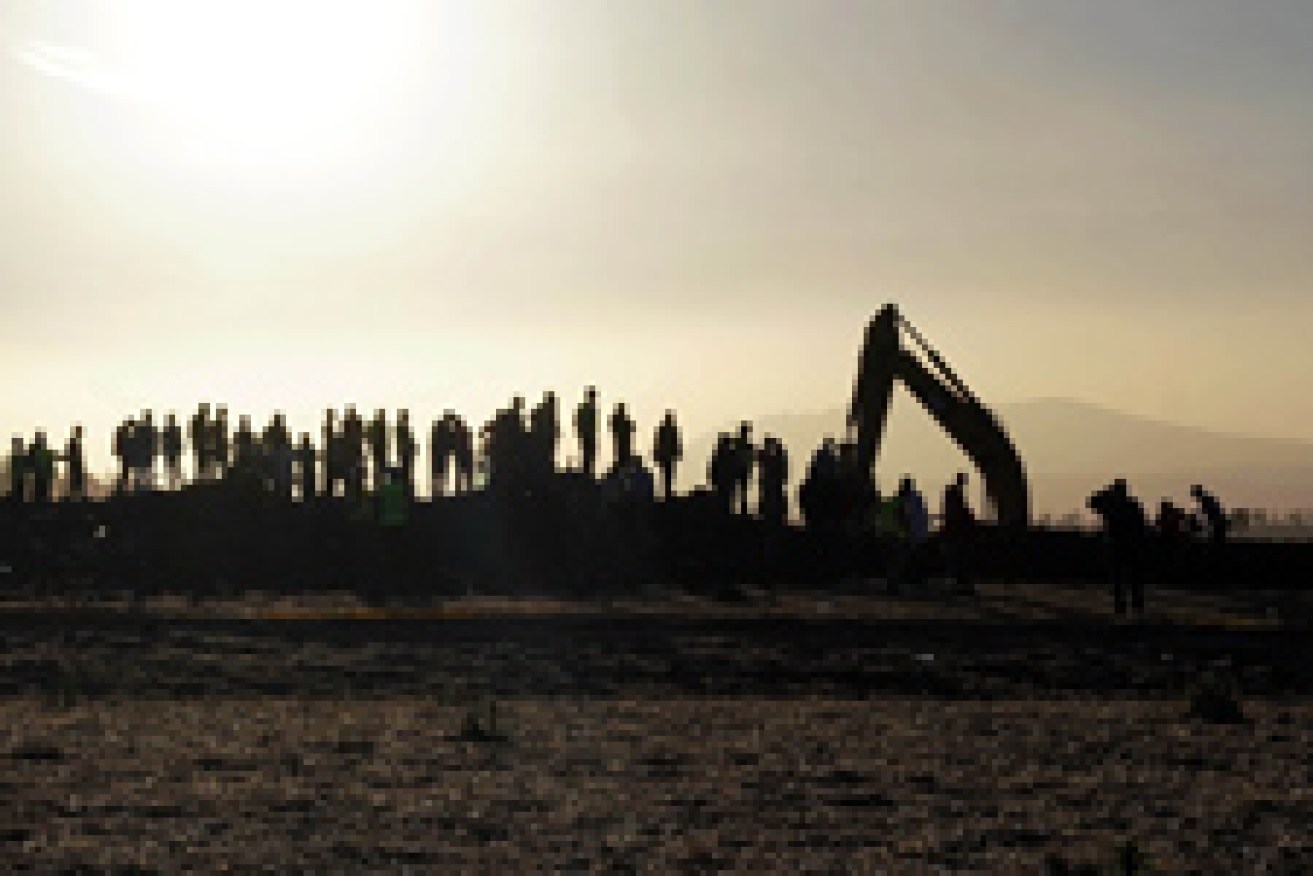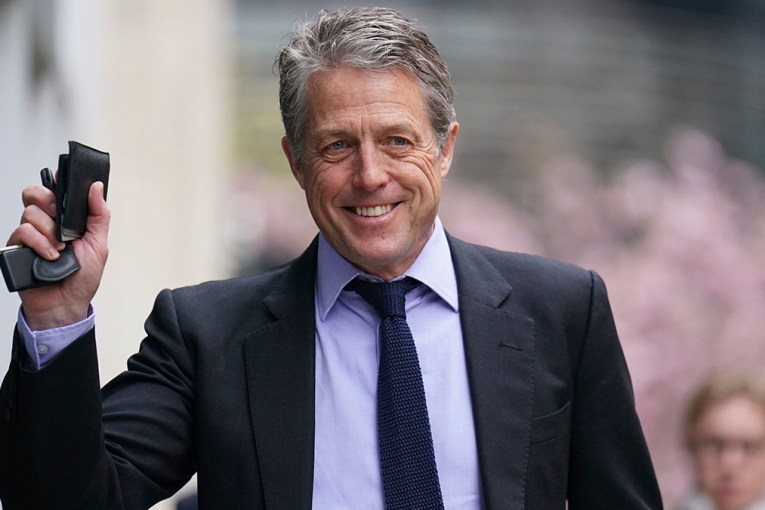China grounds Boeing 737s after Ethiopian crash


Rescue crews stand on the edge of a huge crater caused by the Ethiopian Airlines crash. Photo: Getty
The Boeing 737 Max-8 aircraft involved in two recent deadly crashes have been grounded in China, posing a dilemma for Australia’s Virgin airlines which has the model on order.
Sunday’s Ethiopian Airlines crash which killed 157 people has striking similarities to October’s Lion Air crash that killed 189 people in the Java Sea off Indonesia.
Australian pilots and passengers had been due to fly in the Boeing 737 MAX-8 as early as the end of this year, but on Tuesday China’s aviation authority ordered local airlines using the planes to stop flying.
Chinese media is reporting about 60 such planes have been grounded.
Virgin Australia has confirmed it has 30 of the 737 Max-8 planes and 10 of the Max-10s on order, with the first of either of those models due to arrive in late 2019.
Virgin declined to comment on its plans as investigations continue into both Sunday’s deadly disaster and that of a similar crash off the coast of Indonesia late last year.
Virgin would not be drawn on whether it would cancel or alter its aircraft order, with a spokeswoman saying the airline could not comment while investigations into the crash were under way.
Meanwhile, Boeing tweeted its “heartfelt sympathies” to the families of the Ethiopian Airlines Flight 302 victims.
All passengers and crew on board the Ethiopian Airlines plane died when it crashed after taking off from the capital Addis Ababa on Sunday.

Rescue team walk past collected bodies in bags at the crash site of Ethiopia Airlines near Bishoftu. Photo: AAP
Like the Lion Air crash, the incident happened minutes after take-off in clear weather – the aircraft diving out of control as the pilots attempted to return to the departure airport.
But with investigations into the Ethiopian crash still in the early stages, experts have warned against drawing too many parallels between it and the Lion Air disaster.
On October 29, Lion Air Flight 610 took off from Jakarta but pilots soon noticed trouble. Within 12 minutes of take-off the plane had crashed into the sea.
It later emerged that during a previous route from Bali passengers had initially been delayed from boarding as engineers checked the aircraft for an engine problem.
The aircraft was checked and cleared ready for takeoff the morning of the deadly crash.
What caused the tragedy, Indonesia’s second-deadliest plane crash, is still unclear however a preliminary report pointed to an error with sensors causing the nose of the aircraft to be pushed down dozens of times. The pilots had tried in vain to correct the altitude.
As the clean up from the latest crash begins near the town of Bishoftu, about 50 kilometres from the Ethiopian capital, and families of victims grapple with the loss, manufacturer Boeing has said it would send its technical experts to help Ethiopian and US crash investigators examine the wreckage.
Little remains of the plane, with images from the scene showing pieces of the plane strewn across the land.
Updated Statement on Ethiopian Airlines Flight 302: https://t.co/0jyiFuGHIE pic.twitter.com/Unl92SYykI
— Boeing Airplanes (@BoeingAirplanes) March 10, 2019
William Waldock, an aviation-safety professor at Embry-Riddle Aeronautical University, said investigators would need to look at the plane’s black box.
Mr Waldock said suspicion would be heightened within airlines using the MAX aircraft because in both crashes a fatal nosedive had left a wreckage in tiny pieces.
“Investigators are not big believers in coincidence,” he said.
Mr Waldock said Boeing would look more closely at the flight-management system and automation on the Max. But he noted that it was early days.
Alan Diehl, a former National Transportation Safety Board investigator, said the similarities included both crews encountering a problem shortly after take-off, and reports of large variations in vertical speed during ascent, “clearly suggesting a potential controllability problem” with the Ethiopian jetliner.
But there are many possible explanations, Mr Diehl said, including engine problems, pilot error, weight load, sabotage or bird strikes.
He said Ethiopian Airlines has a good reputation, but investigators will look into the plane’s maintenance, especially since that may have been an issue in the Lion Air investigation.
By contrast, the Ethiopian Airlines CEO told reporters that a maintenance check-up did not find any problems with the plane before Sunday’s flight.








